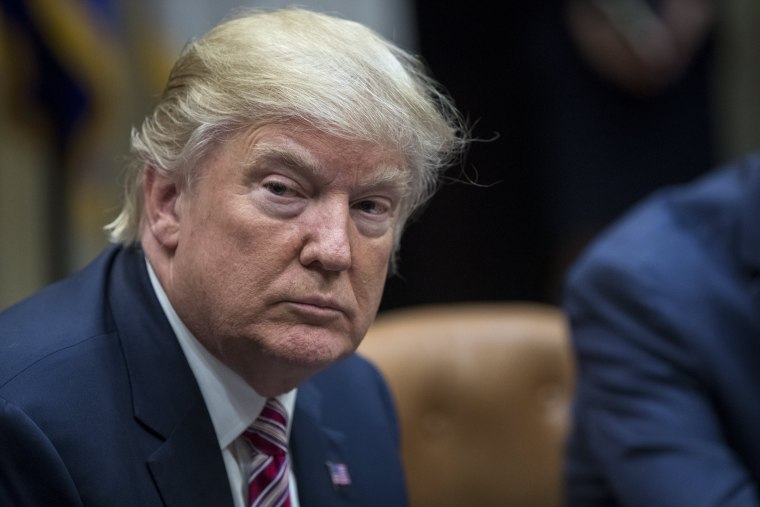The funny thing about Donald Trump's wiretap conspiracy theory is that, from the outset, everyone knew he was lying. The sitting president accused his predecessor of ordering an illegal surveillance operation, as part of a Watergate-like scheme, and nearly the entire political world quickly reached a consensus: these claims are clearly not rooted in reality.As Trump's falsehoods go, these were hardly the most dramatic -- indeed, they're not even the most shocking lie he's told about Barack Obama -- and it didn't take long before the claims were discredited in bipartisan fashion. But there was something about this lie that gained traction in ways most of Trump's other lies don't. Apparently, when a sitting president makes demonstrably false claims about his predecessor committing a felony, many are inclined to believe there should be some kind of consequences for dishonesty at this level.Making matters much worse, when FBI Director James Comey testified before the House Intelligence Committee on Monday, confirming an investigation into the Trump campaign and further debunking Trump's wiretap conspiracy theory, the president used his official White House Twitter account to make a variety of related claims, each of which was plainly untrue.The same day, the White House tried to tell the public that Trump's former campaign chairman and National Security Advisor were unimportant, peripheral figures.And as a result, the bough is breaking. Discussions of the president's uncontrollable dishonesty are becoming more open, more explicit, less guarded, and more widespread. Take, for example, this new editorial from the Wall Street Journal, which argued that Trump's falsehoods "are eroding public trust, at home and abroad."
If President Trump announces that North Korea launched a missile that landed within 100 miles of Hawaii, would most Americans believe him? Would the rest of the world? We're not sure, which speaks to the damage that Mr. Trump is doing to his Presidency with his seemingly endless stream of exaggerations, evidence-free accusations, implausible denials and other falsehoods. [...]Two months into his Presidency, Gallup has Mr. Trump's approval rating at 39%. No doubt Mr. Trump considers that fake news, but if he doesn't show more respect for the truth most Americans may conclude he's a fake President.
In case this isn't widely known, let's note for the record that the Wall Street Journal's editorial page is one of the most Republican-friendly pieces of real estate in all of national print media. When it calls out a GOP president's mendacity in such a direct way, it's emblematic of a change in perceptions about Trump's presidency.What's more, this editorial is a small part of a much larger indictment. The New York Times' David Leonhardt wrote on Monday, "Our president is a liar, and we need to find out how serious his latest lies are." That night, NBC Nightly News aired a hard-hitting segment on Trump's credibility unraveling.The Washington Post's Greg Sargent, reflecting on Trump's presidency, wrote yesterday, "This bad faith -- this deep contempt for process, fact-based debate and policy reality -- borders on all-corrosive." Slate's Jamelle Bouie added that Trump has demonstrated a "basic contempt for the idea of an independent, observable reality that stands as a baseline for his actions.... Trump sees no advantage in accountability, no reason to honor the truth or even gesture toward its existence."Susan Rice, the former White House National Security Advisor and former U.S. Ambassador to the United Nations, explained in a new op-ed today that the foundation of the United States' global leadership is "grounded in the perception that the United States is steady, rational and fact-based. To lead effectively, the United States must maintain respect and trust. So, when a White House deliberately dissembles and serially contorts the facts, its actions pose a serious risk to America's global leadership, among friends and adversaries alike."Taken together, the political system is passing the tipping point. There's an expectation that politicians are often less than truthful, but Donald J. Trump is stretching the boundaries -- not only of what a president can reasonably expect to get away with, but with what is safe and sustainable in a political system that expects to function in a reasonably healthy way.
